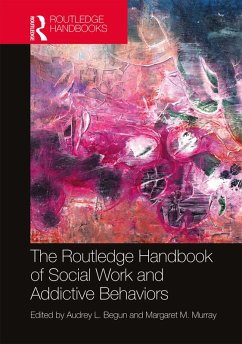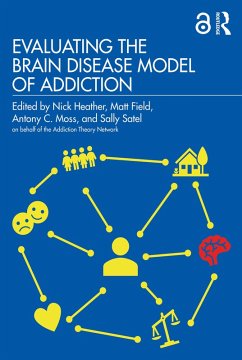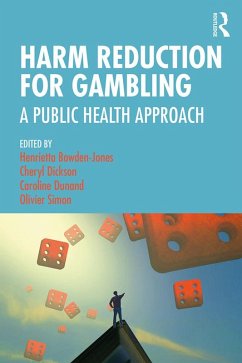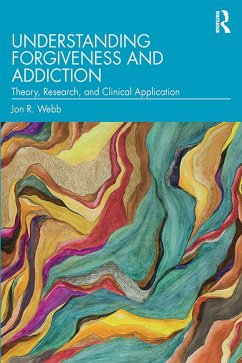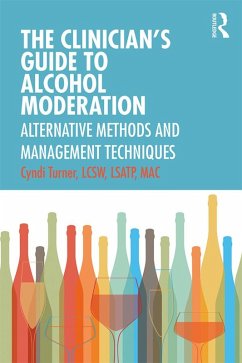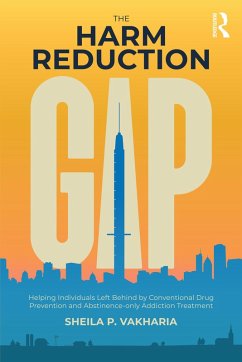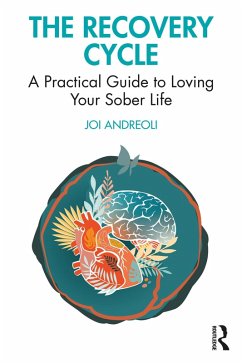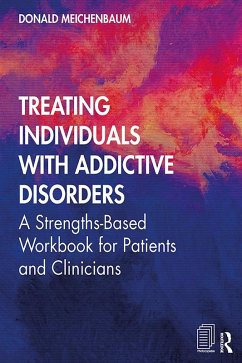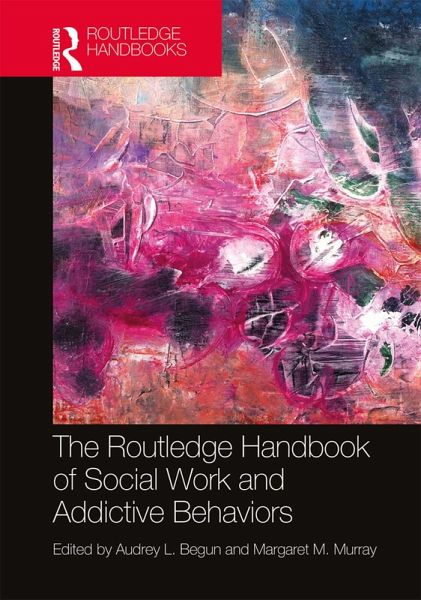
The Routledge Handbook of Social Work and Addictive Behaviors (eBook, ePUB)
Versandkostenfrei!
Sofort per Download lieferbar
45,95 €
inkl. MwSt.
Weitere Ausgaben:

PAYBACK Punkte
23 °P sammeln!
The Routledge Handbook of Social Work and Addictive Behaviors is a definitive resource about addictive behaviors, emphasizing substance misuse, gambling, and problematic technology use. Contents address their prevalence in various communities and populations globally, theories related to their origins and etiology, and what is currently known about effective intervention strategies, education, and research. Social work's biopsychosocial, lifespan, and person-in-environment perspectives underpin the book contents which are applicable to a wide range of professional and social science discipline...
The Routledge Handbook of Social Work and Addictive Behaviors is a definitive resource about addictive behaviors, emphasizing substance misuse, gambling, and problematic technology use. Contents address their prevalence in various communities and populations globally, theories related to their origins and etiology, and what is currently known about effective intervention strategies, education, and research. Social work's biopsychosocial, lifespan, and person-in-environment perspectives underpin the book contents which are applicable to a wide range of professional and social science disciplines. Contents are divided into five sections:
This handbook provides students, practitioners, and scholars with a strong focus on cutting-edge high-quality research. With contributions from a global interdisciplinary team of leading scholars, this handbook is relevant to readers from social work, public health, psychology, education, sociology, criminal justice, medicine, nursing, human services, and health professions.
- The scope and nature of addictive behavior and related problems
- Addictive behavior across the lifespan and specific populations
- Interventions to prevent and address addictive behavior and related problems
- Issues frequently co-occurring with addictive behavior
- Moving forward
This handbook provides students, practitioners, and scholars with a strong focus on cutting-edge high-quality research. With contributions from a global interdisciplinary team of leading scholars, this handbook is relevant to readers from social work, public health, psychology, education, sociology, criminal justice, medicine, nursing, human services, and health professions.
Dieser Download kann aus rechtlichen Gründen nur mit Rechnungsadresse in A, B, BG, CY, CZ, D, DK, EW, E, FIN, F, GR, HR, H, IRL, I, LT, L, LR, M, NL, PL, P, R, S, SLO, SK ausgeliefert werden.




